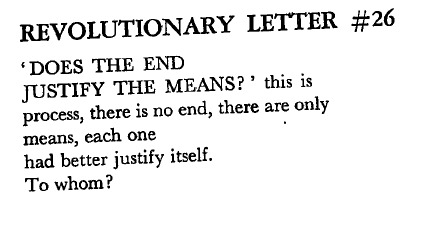Text
Burnout is honestly such a mild word for what people use it to mean. I'm not experiencing "burnout", which sounds so casual and routine that some face masks and a little rest is going to fix it.
My body and mind and even nervous system are stretched to the point that it's going to take a lot more than just a "break" or a few self care tips to recover, and even then, my recovery is just so that I can reenter the spaces that contributed to me being this way in the first place. I'm a little bit more than just burnt out by this.
Workplaces and educational institutions aggressively overwork us, expose us to all kinds of discrimination, which they overlook and gaslight us out of acknowledging, and then constantly ask us to ignore our mental, emotional, and physical needs so that we don't inconvenience them.
We're not burnt out. We're borderline traumatized. Burnout is always talked about like something transient and mild that a little rest and relaxation will fix.
But we're exhausted. We need deep rest and healing. We need new systems. We need new ways of being. The language around burnout just seems like a way of upholding these current violent systems and downplaying their impacts.
44K notes
·
View notes
Link
“It can be a rocky road, especially if you are a professor with a disability that is stigmatized…but it also invites opportunities for learning and community building.”
62 notes
·
View notes
Photo
youtube

the revolution of everyday life
30K notes
·
View notes
Text
people with she/her pronouns do not owe you femininity. people with they/them pronouns do not owe you androgyny. people with he/him pronouns do not owe you masculinity.
34K notes
·
View notes
Photo

On this day, 10 April 1911, a general strike erupted in Lima, Peru bringing business and transport to a standstill. The stoppage broke out in support of a walkout of 500 workers at a US-owned cotton mill the previous month who were demanding better pay, the abolition of the night shift and a reduction of the working day from 13 to 10 hours. Faced with a general strike, the president intervened and forced the mill to agree to the workers’ demands. More info in this account of anarcho-syndicalism in Peru: https://libcom.org/library/anarcho-syndicalism-peru-1905-1930-steven-hirsch https://www.facebook.com/workingclasshistory/photos/a.296224173896073/1691675061017637/?type=3
88 notes
·
View notes
Photo

On this day, 10 April 1969, Indonesian worker activist and martyr Marsinah was born in rural Nglundo, East Java. In school, she was a bright student, at the top of her class, but she was unable to afford to attend university. So she moved to the city, and eventually found work in a watch factory in Porong (content note: sexual violence). Then one day, in April 1993, the governor of East Java increased the minimum wage by 20%. However the company Marsinah worked for, PT Catur Putra Surya, refused to implement the increase. Despite living under the harsh US-backed dictatorship of president Suharto, Marsinah and 500 co-workers walked out on strike on 3 May. The following day they began a sit-in in the factory, and the company began negotiations, which included Marsinah as a spokesperson for the workers, and agreed their demands. On 5 May, 13 workers were called to the District Military Command, where they were forced to sign resignation letters. Marsinah headed to the military office to try to find out what happened to her colleagues, then disappeared. Her body was found 3 days later. She had been brutally tortured, beaten, raped with a blunt instrument and killed. The Indonesian Legal Aid Foundation determined that Marsinah was most likely killed by the army. To date, no one has been convicted for her murder. https://www.facebook.com/workingclasshistory/photos/a.296224173896073/1691590451026098/?type=3
142 notes
·
View notes
Photo
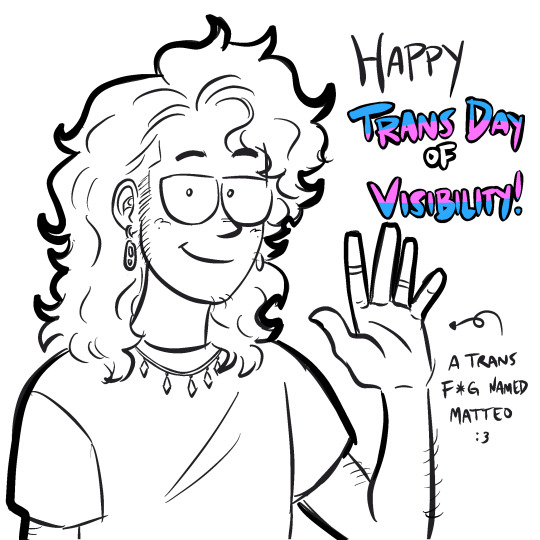
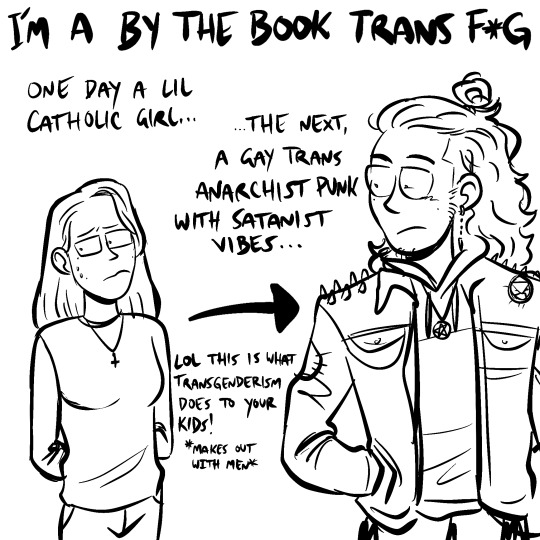
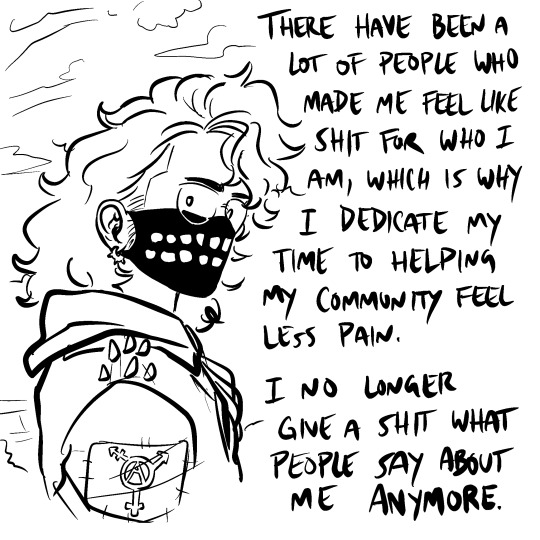
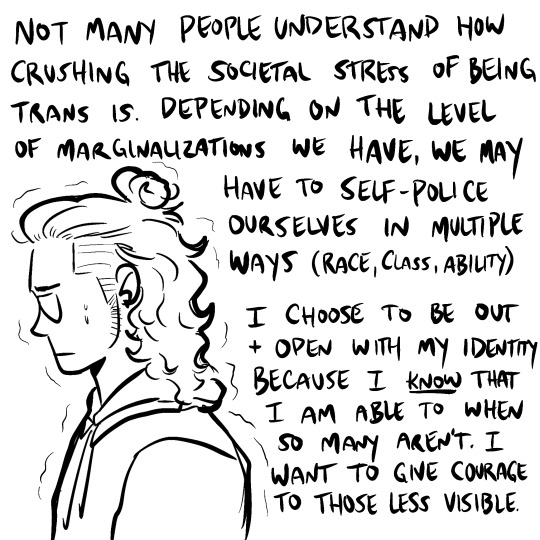
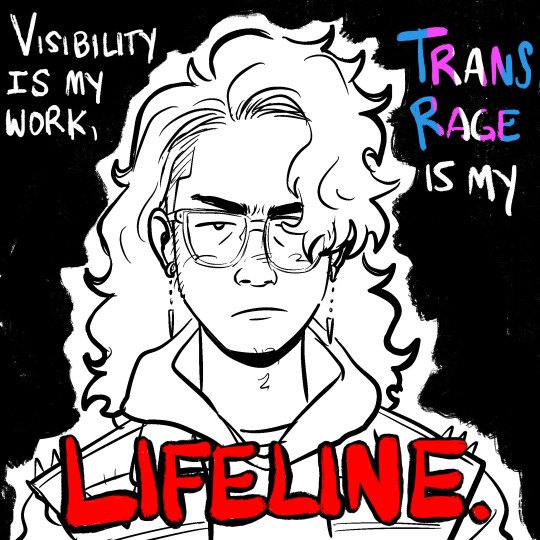
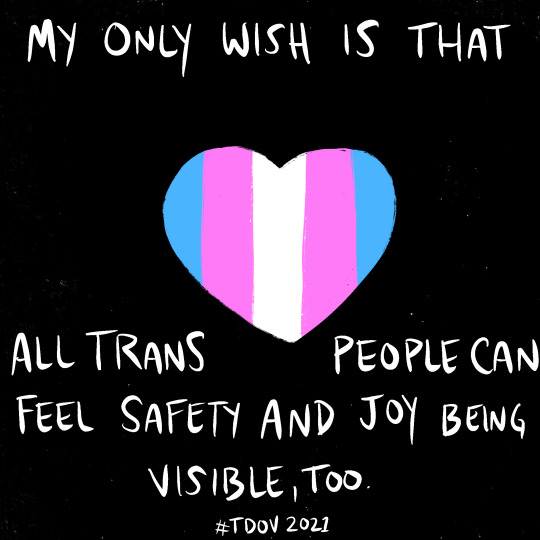
Happy Trans Day of Visibility! I’m full of trans rage and I hope you are too! show solidarity by punching a T*RF in the face!
SUPPORT ME: patreon | kofi | storenvy
TRANS RESOURCES/MUTUAL AID: carrd | funds | more funds
25K notes
·
View notes
Text
Signal-boosting another language survey for nonbinary people
[ Link to survey ]
Are you non-binary? Would you like to contribute towards research into non-binary experiences of language?
I am looking for participants to take part in my research project into the impact of language on non-binary people. I am researching the effects of not finding the right words to describe ourselves and what happens when we do find them.
Participants are asked to fill in an online survey that is anonymous and will take around 20 minutes to complete. The survey will ask how you describe yourself and your gender; what you would do if you couldn’t find a suitable phrase for your identity and how that feels; how it feels when your gender terms and pronouns are used correctly and whether you’ve ever experienced any negative sentiment from others towards your gender identity.
The information you provide will be anonymised from the start; there will be no way to identify if you’ve participated or what your answers where. Data will be stored in accordance with GDPR on storage owned by The University of Birmingham. After the survey closes, the data will be analysed ready to inform my thesis entitled: The importance of self-definition and the negative impact of explanatory gaps on non-binary individuals in their use of self-descriptive language.
I am specifically seeking participants who identify as a gender under the umbrella term of non-binary. Owing to the scope of the research, cisgender or binary trans* individuals do not qualify for this survey.
The survey opens 1st March 2021 and aims to close 30th May 2021 and is being run through Microsoft Forms. No login is required to complete the survey. Participation in this study is entirely voluntary and it is up to you whether you choose to take part. Depending on the number of responses received the survey may close earlier.
The survey can be found here.
If you have any queries please contact me, Rai Furniss-Greasley (they/them), on r.furniss-greasley@pgr.bham.ac.uk
346 notes
·
View notes
Photo





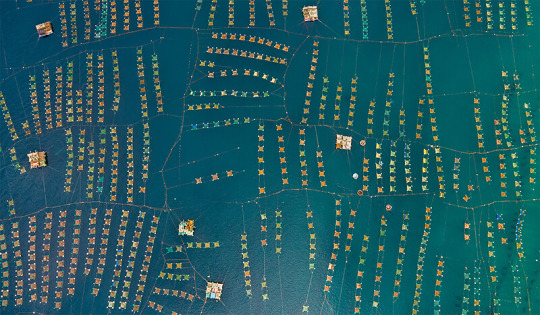


colors of vietnam, as captured through the lens of khanh phan-thi
16K notes
·
View notes
Note
Is gringo a slur? Personally, I don't think it is. What are your thoughts?
I say this as a white person who learned Spanish as a second language, I don’t think it is.
It’s kind of up there with “cracker” and “colonizer”, like it could hurt your feelings and gringo can be pretty personal, but it’s not a slur to me.
I don’t really have any deep thoughts on it but since you asked I’ll try and explain my reasoning
To me, a gringo is a specific type of ignorant or ethnocentric, white (usually American) person with a very specific attitude. Almost like a very specific kind of Karen.
Otherwise it’s a default word for “these white people who come in and think they own the place”, sort of just as an assumption
Like yeah maybe you might get called a gringo, but you’re still white so like the worst that happens is you get your feelings hurt.
To me a slur is different.
A slur is more... emblematic of the kind of treatment you’re used to getting, it’s nasty and it’s very personal, insulting a thing you can’t change and didn’t ask for in a world that devalues the thing that slur refers to.
With gringo it’s more like... It’s not you being oppressed, it’s not something your ancestors have been called to put them down or to excuse the cruel treatment they received, you were never called that growing up by the rest of society at large, it’s not a word that even people in your community use as a way to make themselves seem superior. Gringo was never used in a way to make people feel bad about their skin or to make them feel ugly by society at large, gringo doesn’t mean less desirable, it doesn’t imply something about your reputation, it doesn’t carry a stereotype about your temperament or your sexual activities, it’s not a term people use to make assumptions about your lack of intelligence or level of civilization, and it’s not a term that people would use to describe an entire civilization or country as less than or other
It’s also not indicative of anything systematic. Maybe someone’s been called a gringo by their fellow classmates and bullied, maybe your coworkers call you a gringo and it doesn’t feel nice, but the world at large doesn’t call you a gringo or insult your whiteness or treat whiteness as less than.
In fact, depending on where you live and your social circle, you could go your whole life without being called a gringo by anyone, ever. And you could even be the majority or the assumed majority across great portions of the world
People who have been called slurs related to their skin color, sexuality and gender identity, disabilities etc can’t often change or hide those parts of themselves, those parts of them are a part of them, sometimes physically obvious and it follows them.
A white person might get called a gringo in school, but move them to a different school and it might not happen. That’s not the same experience for people who are seen as different for whatever reason.
They will always be assumed to be the minority, and most receive different treatment socially, professionally, medically, romantically, and by their own friends and family, in government and in regards to their legal rights - sometimes just to exist - and it happens on a grand systematic scale
So, no. I don’t think of gringo as a slur. I think of gringo as punching up, while a slur is punching down
I think it’s an insult and not a nice thing to be called, but it’s not a slur in my opinion
108 notes
·
View notes
Photo

On this day, 28 March 1977, over 1,300 nearly all Black sanitation workers in Atlanta walked off the job for a 50 cent an hour pay increase. The city’s first Black mayor, Maynard Jackson, who had come to power on the back of the civil rights and Black power movements and to whom the workers looked for support, sacked them all. Business leaders, white and Black-owned newspapers, churches and even many former civil rights leaders supported the mayor. Martin Luther King Sr (not to be confused with MLK Jr, who was assassinated while supporting a strike of sanitation workers) strongly supported the firings, saying: “fire the hell out of them.” The workers were replaced with scabs, but the strikers fought on, setting up picket lines around the city, fighting with strikebreakers and police, and dumping rubbish on the steps of city hall. But Jason Schultz argues in his analysis of the strike that the “union also could not ideologically defeat the city bosses for Jackson had already painted them as run by greedy, white Northerners bent on driving the city bankrupt while making the city’s first Black mayor look bad in the process. Civic pride among everyday Black folks was a major reason they rallied around their mayor, protecting him against a perceived outside threat. This spelled doom for Black sanitation workers seeking broad popular support.” Eventually the workers were forced to return and reapply for their jobs in defeat, some of them at lower wages, and by the end of the year most of the strikers had been rehired. It was an early lesson to many that having representatives of colour doesn’t necessarily benefit working class people of colour. This is an account of the struggle: https://libcom.org/library/disgrace-god-striking-black-sanitation-workers-vs-black-officialdom-1977-atlanta https://www.facebook.com/workingclasshistory/photos/a.296224173896073/1682189138632896/?type=3
331 notes
·
View notes
Text
arabic is the real language of love fuck french and italian
17K notes
·
View notes
Text
“After learning my flight was detained 4 hours, I heard the announcement: If anyone in the vicinity of gate 4-A understands any Arabic, Please come to the gate immediately. Well—one pauses these days. Gate 4-A was my own gate. I went there. An older woman in full traditional Palestinian dress, Just like my grandma wore, was crumpled to the floor, wailing loudly. Help, said the flight service person. Talk to her. What is her Problem? we told her the flight was going to be four hours late and she Did this. I put my arm around her and spoke to her haltingly. Shu dow-a, shu- biduck habibti, stani stani schway, min fadlick, Sho bit se-wee? The minute she heard any words she knew—however poorly used— She stopped crying. She thought our flight had been canceled entirely. She needed to be in El Paso for some major medical treatment the Following day. I said no, no, we’re fine, you’ll get there, just late, Who is picking you up? Let’s call him and tell him. We called her son and I spoke with him in English. I told him I would stay with his mother till we got on the plane and Would ride next to her—Southwest. She talked to him. Then we called her other sons just for the fun of it. Then we called my dad and he and she spoke for a while in Arabic and Found out of course they had ten shared friends. Then I thought just for the heck of it why not call some Palestinian Poets I know and let them chat with her. This all took up about 2 hours. She was laughing a lot by then. Telling about her life. Answering Questions. She had pulled a sack of homemade mamool cookies—little powdered Sugar crumbly mounds stuffed with dates and nuts—out of her bag— And was offering them to all the women at the gate. To my amazement, not a single woman declined one. It was like a Sacrament. The traveler from Argentina, the traveler from California, The lovely woman from Laredo—we were all covered with the same Powdered sugar. And smiling. There are no better cookies. And then the airline broke out the free beverages from huge coolers— Non-alcoholic—and the two little girls for our flight, one African American, one Mexican American—ran around serving us all apple juice And lemonade and they were covered with powdered sugar too. And I noticed my new best friend—by now we were holding hands— Had a potted plant poking out of her bag, some medicinal thing, With green furry leaves. Such an old country traveling tradition. Always Carry a plant. Always stay rooted to somewhere. And I looked around that gate of late and weary ones and thought, This is the world I want to live in. The shared world. Not a single person in this gate—once the crying of confusion stopped —has seemed apprehensive about any other person. They took the cookies. I wanted to hug all those other women too. This can still happen anywhere. Not everything is lost.”
—
Naomi Shihab Nye (b. 1952), “Wandering Around an Albuquerque Airport Terminal.” I think this poem may be making the rounds, this week, but that’s as it should be. (via oliviacirce)
When I lose hope in the world, I remember this poem.
(via bookoisseur)
I’m really glad I read that.
(via selfesteampunk)
536K notes
·
View notes
